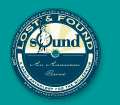Return to the House of Night story page.
Preserving Indigenous Language,
Story, Song and Land
The Storyscape Project of The Cultural Conservancy
Thoreau Center for Sustainability
To contact the Storyscape Project, please call
415-752-8678 or email pklasky@igc.org
The old people said, " The land takes care to embrace us with its
nourishment, speak to us in our language, give us stories to educate us,
and listen to the songs of beauty we sing in it's honor."
--Otis Parrish, Kashaya Pomo elder
Indigenous stories, songs and languages, the cultural treasures of native
peoples, are vanishing at an alarming rate. Oral literatures are disappearing as older generations pass on and young people feel the pressure of assimilation into the dominant society through cultural, political and economic colonization and homogenization. Also threatened are the storehouses of ethnobiological knowledge on the healing properties of natural resources, harmonious ways of living with the natural world and time-tested sustainable land management practices.
Due to the effects of colonization, indigenous peoples have lost most of
their aboriginal lands, and with them the foundation for their sustenance
and identity. Working directly with and at the invitation of native communities, the Storyscape Project aims to help preserve oral literature and cultural and ecological landscapes in a process that empowers traditional communities to protect their way of life. By establishing the cultural significance of traditional grounds through ethnographic evidence, indigenous communities can defend their lands against exploitation and environmental hazards and develop a foundation for land acquisition, access and management.
Audio and Film Recordings
Through audio and film recordings of stories, songs and language, and
through cultural mapping of traditional and sacred sites, indigenous communities can preserve their traditional knowledge for their own purposes. Some indigenous communities may want to archive or make public their cultural resources, others may want to use the recordings for their own purposes without public exposure. For those communities working with the Storyscape Project, the choice is theirs.
The Storyscape Project has a fully equipped sound studio and a qualified
team of field ethnographers and cultural activists. One of our current projects has been the restoration, recording and translation of the ancient songs of the Mojave people of the Colorado River region. We are also producing a videotape of Mojave traditional sites by recording elders speaking about the significance of these sites for cultural preservation and protection of their lands.
Intellectual property rights are retained by the individuals, tribes or communities served.
Internship Program
An integral part of the Storyscape Project is the involvement of the indigenous community in the recording and mapping process. Interns from the community learn about ethnographic techniques and use of all equipment and are encouraged
to offer their invaluable advice and perspectives to the overall effort.
Storyscape Project Team
The Storyscape Project team includes dedicated individuals with years of
experience in the fields of environmental and indigenous rights activism,
ethnography, anthropology, cultural geography, sound and film recording
and cartography.
Team members:
Melissa Nelson (Ojibwe), Executive Director, The Cultural Conservancy
(Ph. D. candidate in Cultural Ecology) cultural and environmental activist.
Philip M. Klasky, Project Director, The Storyscape Project (M. A. in
Cultural Geography), cultural and environmental activist.
Otis Parrish (Kashaya Pomo), Educational Director, The Cultural Conservancy
(M.A. in Anthropology). Colin Farish, Producer/Audio Engineer, Stillwater
Sounds Studio. Deborah Rodgers, Cartographer. (M.A. candidate in Geography and Human Environmental Studies). Brett Jacobson, Ethnomusicologist. L. Frank
(Tongva), artist, ethnographer.
You need the free RealAudio player to listen to audio files.
Copyright © 2000 The Kitchen Sisters

